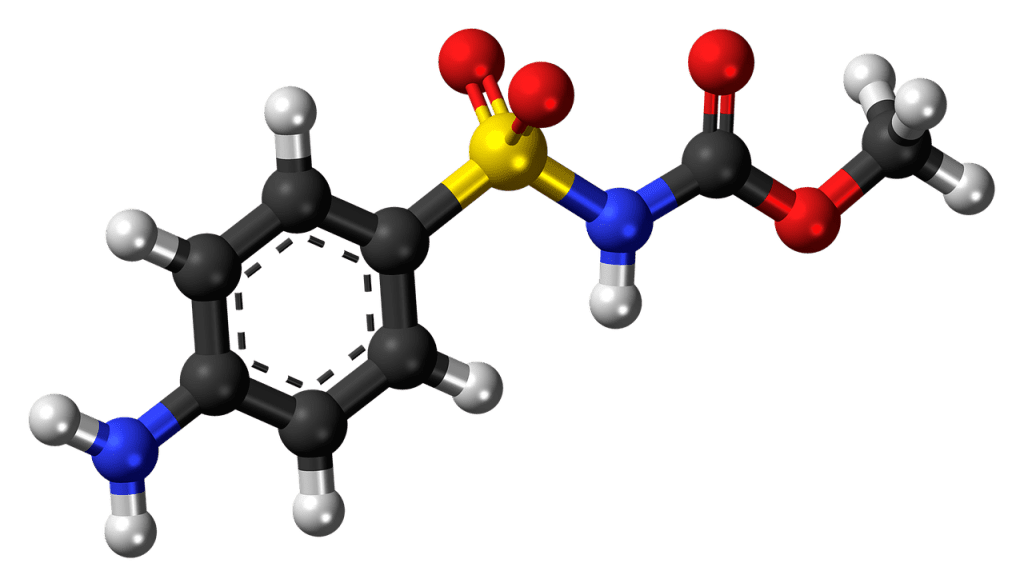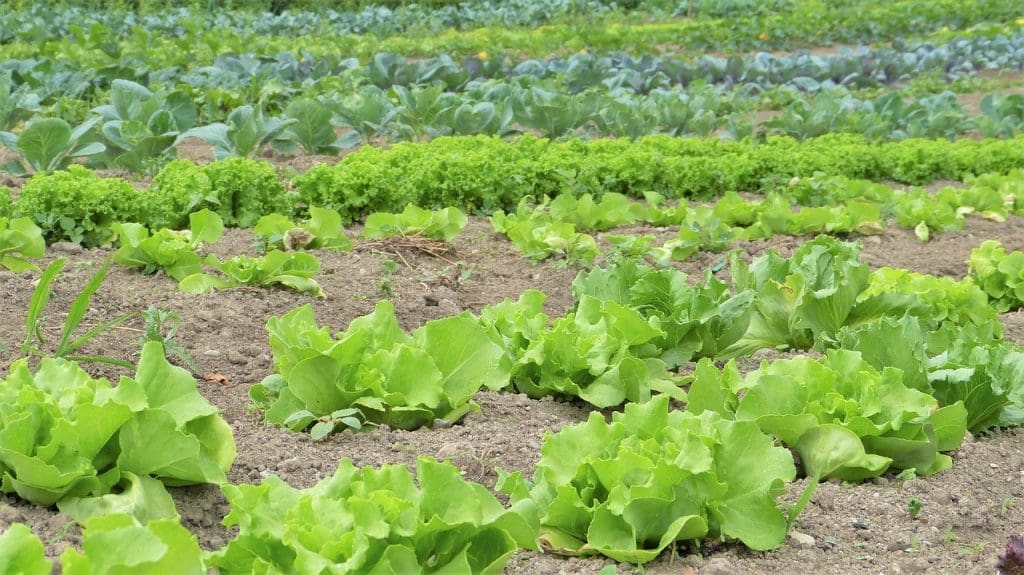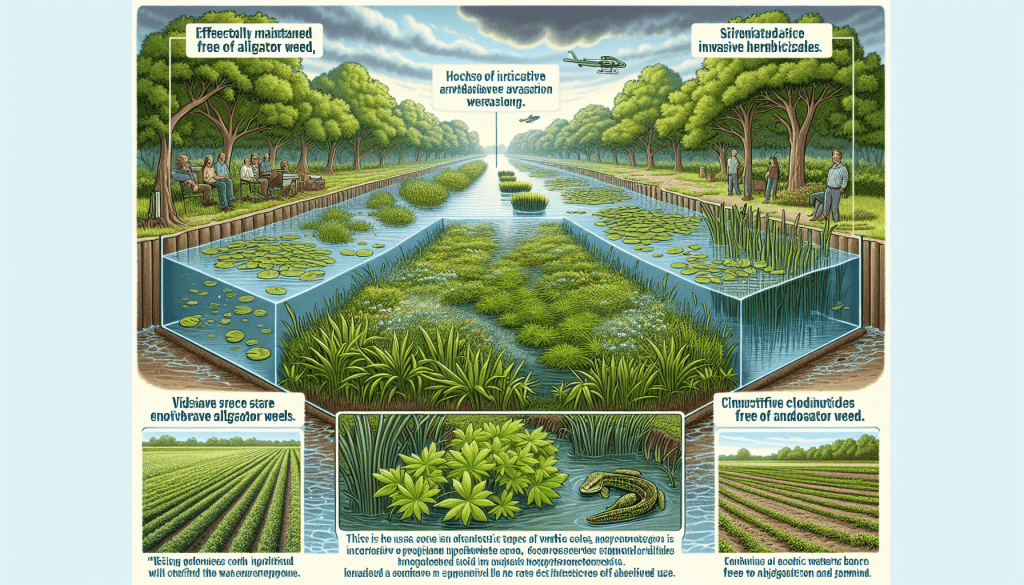In “The Benefits of Using Herbicides to Control Alligator Weed,” you’ll learn how herbicides can be your best ally in managing this invasive and stubborn plant. Alligator weed can cause serious damage to your local ecosystem, affecting waterways and agricultural lands. By utilizing targeted herbicides, you can effectively control its spread, ensuring a healthier environment and protecting your valuable crops. Embrace the ease and efficiency of herbicides to keep alligator weed in check and maintain the balance of nature in your community.
The Benefits Of Using Herbicides To Control Alligator Weed
Introduction: Why Consider Herbicides?
Have you ever wondered if there’s an effective way to manage the relentless growth of alligator weed in your garden or community areas? Herbicides might just be the solution you’re looking for! By utilizing chemical treatments, you can target and control this invasive plant. But what exactly are the benefits of using herbicides to combat alligator weed? Let’s dive into the details together!
Understanding Alligator Weed
Before jumping into the benefits of using herbicides, let’s first understand what alligator weed is and why it’s a problem. Alligator weed is a highly invasive aquatic plant originating from South America. It has spread to various parts of the world, causing ecological and agricultural issues.
Characteristics of Alligator Weed
Alligator weed is a robust and adaptable weed that can grow in both aquatic and terrestrial environments. It forms dense mats that can clog waterways, affecting water flow and the habitats of aquatic organisms. On land, it competes aggressively with native vegetation, reducing biodiversity.
Why Control is Necessary
The uncontrolled spread of alligator weed can lead to numerous problems:
- Environmental Impact: It disrupts native ecosystems and outcompetes local flora.
- Agricultural Impact: It invades crops and pasturelands, reducing agricultural productivity.
- Economic Cost: Management and eradication efforts can be costly.

The Role of Herbicides in Controlling Alligator Weed
Now that we have a better grasp of what we’re dealing with, let’s explore how herbicides can play a pivotal role in managing alligator weed.
What are Herbicides?
Herbicides are chemical substances used to control or eliminate unwanted plants. They can be selective, targeting specific plant species, or non-selective, affecting a broad range of plants.
Benefits of Using Herbicides
Using herbicides to control alligator weed offers several advantages:
1. Effective Management
Herbicides provide a reliable method for managing and reducing alligator weed populations. When used correctly, they can effectively kill the weed, preventing its spread and growth.
2. Time-Efficient
Manual removal of alligator weed can be labor-intensive and time-consuming. Herbicides can drastically reduce the time needed for control, freeing up resources for other tasks.
3. Cost-Effective in the Long Run
While the initial investment in herbicides and application equipment might seem high, the long-term benefits often outweigh the costs. Effective herbicide use can reduce the need for repeated manual removal, potentially saving money over time.
Types of Herbicides for Alligator Weed
Not all herbicides are created equal, and different types are better suited for various situations. Here’s a breakdown of the types of herbicides you might use for controlling alligator weed:
Selective vs. Non-Selective Herbicides
- Selective Herbicides: Target specific types of plants, leaving desired vegetation unharmed. These are ideal for areas where you want to spare native plants while eliminating alligator weed.
- Non-Selective Herbicides: Kill all plants they come in contact with. These are suitable for areas where complete vegetation removal is required.
Application Methods
Depending on the situation, you can apply herbicides using different methods:
| Application Method | Description | Best Used For |
|---|---|---|
| Foliar Spray | Sprayed directly onto the leaves | Dense infestations |
| Cut-Stem Treatment | Applied to freshly cut stems | Isolated plants |
| Soil Application | Applied to the soil where plants absorb it | Long-term control |

Environmental Considerations
While the use of herbicides can be highly effective, it’s essential to consider their environmental impact.
Potential Risks
Herbicides can pose risks to non-target plants, animals, and water sources. It’s crucial to select the right type and apply it correctly to minimize these risks.
Mitigation Strategies
To mitigate potential environmental risks:
- Follow Label Instructions: Always adhere to the manufacturer’s guidelines.
- Select Appropriate Herbicides: Choose herbicides that are safe for your specific environment.
- Use Protective Equipment: Ensure personal safety and minimize environmental contamination.
Integrating Herbicides with Other Control Methods
While herbicides are powerful tools, integrating them with other control methods can often yield the best results.
Biological Control
Introducing natural predators or pathogens can help manage alligator weed. Combining biological control with herbicides can enhance overall effectiveness.
Mechanical Control
Physical removal methods like cutting, mowing, and dredging can complement herbicide treatments. Herbicides can prevent regrowth after mechanical removal, providing a more comprehensive solution.
Integrated Weed Management (IWM)
An IWM approach uses a combination of chemical, biological, mechanical, and cultural methods tailored to the specific situation. By integrating various techniques, you can achieve a more sustainable and effective control of alligator weed.

Steps to Using Herbicides Effectively
If you decide to use herbicides to control alligator weed, following these steps can help ensure their effective and safe application:
Step 1: Identify the Problem
Accurately identify the presence and extent of alligator weed in your area. This will help you determine the appropriate type and amount of herbicide required.
Step 2: Select the Right Herbicide
Choose a herbicide specifically designed for aquatic plants if you’re dealing with water-based infestations. For terrestrial areas, select a suitable formula for land-based alligator weed.
Step 3: Prepare the Area
Clear the area of any debris that may interfere with the application process. Ensure you have the necessary protective equipment and tools.
Step 4: Application
Apply the herbicide using your chosen method. Whether spraying or treating stems, ensure even coverage to maximize effectiveness.
Step 5: Monitor and Follow Up
After application, regularly monitor the treated areas for signs of regrowth. Follow up with additional treatments if necessary to ensure long-term control.
Success Stories
To give you an idea of the effectiveness of using herbicides, here are a couple of success stories:
The Case of Lake Okeechobee, Florida
Lake Okeechobee experienced significant infestations of alligator weed, impacting water quality and local wildlife. Through a coordinated effort involving the use of selective herbicides, authorities were able to significantly reduce the weed population, improving the overall health of the ecosystem.
Agricultural Success in New South Wales, Australia
Farmers in New South Wales faced substantial crop losses due to alligator weed infestations. By implementing an integrated management approach that included herbicide treatments, they managed to reclaim their fields and improve agricultural productivity.

Conclusion: Making an Informed Decision
Using herbicides to control alligator weed presents numerous benefits, from effective management and time efficiency to long-term cost savings. However, it’s essential to understand the types of herbicides available, their potential environmental impacts, and the importance of integrating them with other control methods.
By following best practices and making informed decisions, you can successfully manage alligator weed and protect your local environment. Feel free to reach out with any questions or share your experiences with using herbicides for weed control. We’re all in this together, navigating the world of garden and land management!
